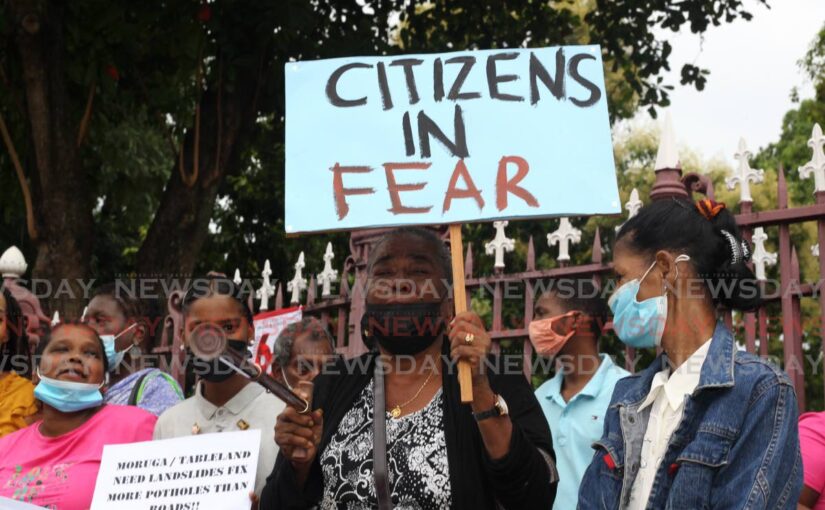Angry at a corrupt, coercive system of military conscription, or simply unwilling to fight, many Ukrainian men are paying their way past a ban on...
Vous n'êtes pas connecté
- English
- Français
- عربي
- Español
- Deutsch
- Português
- русский язык
- Català
- Italiano
- Nederlands, Vlaams
- Norsk
- فارسی
- বাংলা
- اردو
- Azərbaycan dili
- Bahasa Indonesia
- Հայերեն
- Ελληνικά
- Bosanski jezik
- українська мова
- Íslenska
- Türkmen, Түркмен
- Türkçe
- Shqip
- Eesti keel
- magyar
- Қазақ тілі
- Kalaallisut ; kalaallit oqaasii
- Lietuvių kalba
- Latviešu valoda
- македонски јазик
- Монгол
- Bahasa Melayu ; بهاس ملايو
- ဗမာစာ
- Slovenščina
- тоҷикӣ ; toğikī ; تاجیکی
- ไทย
- O'zbek ; Ўзбек ; أۇزبېك
- Tiếng Việt
- ភាសាខ្មែរ
- རྫོང་ཁ
- Soomaaliga ; af Soomaali
Rubriques :
 Maroc - EURASIAREVIEW.COM - A la une - 26/Dec 23:57
Maroc - EURASIAREVIEW.COM - A la une - 26/Dec 23:57
A Cleric’s Heroism – OpEd
By Lawrence W. Reed In many homes worldwide, the day after Christmas is nearly as festive as the day before. December 26 is a holiday in the UK and many Commonwealth nations. People everywhere look forward with hope to the New Year just days away. That may not have been true on December 26, 1948, for a Catholic prelate in Hungary named Cardinal József Mindszenty (1892–1975). Arrested that day by communist authorities, he was sentenced to life in prison on concocted charges of “treason and conspiracy.” Beatings and torture followed. This was not Mindszenty’s first arrest. He was just 27 when, in 1919, he spoke out against the “socialist policies” of the Hungarian government and found himself behind bars as a result. A few months later, for expressing similar sentiments, he was re-arrested by the next government, a short-lived communist one. Then in 1944, Mindszenty was arrested by the Nazi puppet regime when he opposed the government’s plan to quarter its troops on Church property. When he was grabbed and jailed in the waning days of 1948, “here we go again” might have sprung to his mind. When the bad guys hate you, you’re probably doing something right. Every time the authorities busted Mindszenty, it was for the same “crime,” namely, speaking truth to power. His story recalls an inspiring statement, in a slightly different context, from Winston Churchill. During a visit to Harrow School near London in 1941, the Prime Minister declared: Never give in, never give in, never, never, never, never—in nothing, great or small, large or petty—never give in except to convictions of honor and good sense. Never yield to force. Never yield to the apparently overwhelming might of the enemy. Cardinal Mindszenty personified the courage and defiance to which Churchill alluded. As head of the Roman Catholic Church in Hungary, he despised tyranny and believed it his Christian duty to oppose it. He should be remembered, in the words of Claremont Institute scholar Daniel Mahoney in his Introduction to the Cardinal’s Memoirs, “as one of the antitotalitarian titans of the twentieth century.” In 1947, as the post-war Soviet occupation tightened communism’s grip on Hungary, the Cardinal repeatedly and publicly condemned the oppressors. He issued statements that angered the authorities, such as one in April that warned: The government has assumed complete control of the publication of textbooks to be used in our schools. Thus the ruling political party in this land will now have the power to indoctrinate our youth. Ahead of sham elections that same year, Mindszenty chastised his fellow Hungarians who naively believed that the communists had mellowed and embraced democracy: We trusted those who had taken over the reins of government. We overlooked their abuses of authority, believing such abuses were the inevitable accompaniment of change and hoping they would cease with the passage of time. Now the time has come for elections, we can no longer keep silent. We must publicly declare that no Christian voter can support a party that rules by violence and oppression and tramples underfoot all natural laws and human rights. By December of the following year, the regime viewed the Cardinal as an implacable foe who had to be silenced and discredited. I, for one, am thankful that humanity often produces such remarkable people. Mindszenty’s resolve helped stiffen the spines of others when circumstances called for courage and defiance. That spirit ultimately prevailed and brought down one European communist despotism after another in 1989–91. Two months after his fourth arrest—on the day after Christmas in 1948—Mindszenty was put on trial by Hungary’s Stalinist dictatorship. His conviction and life sentence in early 1949 produced an international uproar. Even the United Nations issued a resolution condemning it. The regime claimed he confessed to his “crimes,” but the Hungarian people knew better. The Cardinal had warned before his incarceration that any confession should be regarded as fabricated or induced under duress and, therefore, meaningless. When Hungarian patriots briefly liberated Budapest in a 1956 uprising, Mindszenty was set free. He immediately endorsed the movement and spoke to the nation by radio as armed forces from Moscow invaded Hungary to put the communists back in power. “Let everyone in the country know,” he said, “that this fight was not a revolution but a fight for freedom.” The Soviet invasion sadly succeeded, prompting Mindszenty to seek asylum in the US embassy in the Hungarian capital. He remained inside for the next 15 years until a diplomatic arrangement allowed him to leave the country safely. He lived in exile in Austria until he died in 1975. For two reasons, we must not forget brave men and women like Cardinal Mindszenty. One is that we must know history as it was lived, not as someone might choose to rewrite it or erase its lessons. Another is that the wisdom and warnings of people like Mindszenty may apply to circumstances yet to be lived. About the author: Lawrence W. (“Larry”) Reed is FEE's President Emeritus, Humphreys Family Senior Fellow, and Ron Manners Global Ambassador for Liberty. He previously served as president of FEE from 2008-2019. He chaired FEE’s board of trustees in the 1990s and has been both writing and speaking for FEE since the late 1970s. Source: This article was published at FEE
Articles similaires
Putin Sends Signals To The West On Ukraine Ahead Of Trump’s New Term – Analysis
By Steve Gutterman (RFE/RL) -- Vladimir Putin’s end-of-year Q&A session with reporters and the public is billed as a chance for Russian...
How King Speechmaker saved his village
A traditional mas Christmas Dara E Healy “Greetings to all and sundry Is Pierrot again Here to tell allyuh a story ’ bout how King...
How King Speechmaker saved his village
A traditional mas Christmas Dara E Healy “Greetings to all and sundry Is Pierrot again Here to tell allyuh a story ’ bout how King...
Witches, Covid, And Our Dictatorial Democracy – OpEd
On December 1, President Joe Biden announced that he was pardoning his son Hunter for all the crimes he committed from January 1, 2014 through...
Midnight Robber dances again
A traditional mas Christmas Dara E Healy “I am the Pierrot With word skills fuh so I am an orator from long ago And bonjay, I could fight too! Me...
Cropper Foundation CEO bridges gap between environmental development, communities
PROTECTING the environment and development do not have to be in opposition, says the new Cropper Foundation CEO Cherisse Braithwaite-Joseph. And...
Lessons of democracy: ‘The voice of the people’
DIANA MAHABIR-WYATT There is a wise Latin phrase, Vox populi vox Dei, translated as "the voice of the people is the voice of God," and we keep...
Unmasking the Truth: The Anambra APC Debacle and the Mysterious Death of Senator Ifeanyi Ubah - Hon Kamen Chuks Ogbonna
Below is an extract of Hon. Kamen Chuks Ogbonna graphic presentation on what actually happened to Senator Ubah and the role of Anambra APC." I...
Trump’s promise of mass deportation throws undocumented Texans into fear, uncertainty
"Trump’s promise of mass deportation throws undocumented Texans into fear, uncertainty" was first published by The Texas Tribune, a nonprofit,...
Les derniers communiqués
-
Adobe Brings Conversational AI to Trillions of PDFs with the New AI Assistant in Reader and Acrobat
Adobe - 21/02/2024
-
Laura Frigenti takes the Helm as Chief Executive Officer of the Global Partnership for Education
Global Partnership for Education - 05/12/2022





